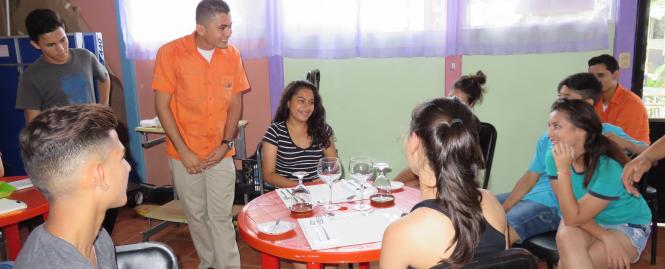SELAL's Impact

As an academic institution, an important component for INOGO/Stanford in the region is a comprehensive, IRB-approved, research-based evaluation of the SELAL program efficacy: How effective is the program in improving students’ environmental knowledge and responsibility, job-market skills, and leadership? How could it be improved? With students’ participation, we collect and analyze data on: 1) Environmental/personal leadership; 2) Ecology, environmental science, and ecotourism; 3) Personal confidence; 4) Content learning/retention; 5) English language quality; and 6) English conversation fluency. To better improve student, academic, and industry needs, INOGO/Stanford continuously shares input, program data, and results with the CTP Puerto Jiménez and other regional partners.
Data from SELAL programs in 2015 and 2016 were analyzed and published in the journal Environmental Education Research in April 2017. A summary of that article can be found here. Another article from this research is forthcoming1 and an article is in progress that analyzes data collected from the 2017 and 2018 program participants and community members. In general, our work shows that students have increased their knowledge of their local environment and conservation and development issues. They also leave the program with improved self-confidence and motivation to continue learning English.
More immediately and directly, SELAL has had a positive impact on four students through their employment at local ecotourism businesses. One local ecolodge gives priority to SELAL participants when hiring workers. Indeed, this may be yet one example of working toward increasing social capital in the region (Hunt et al., 2015).
1Selby, S., A. Cruz, N. Ardoin, and W. H. Durham. Forthcoming. “Developing Sustainable Leadership and Environmental Education for Youth in Rural Costa Rica: A Mixed Methods Analysis
Other articles:
Sibaja, E. and Dennis, K. “SELAL: Leaders of the future.” Ballena Tales.
https://www.ballenatales.com/selal-leaders-of-the-future/
Dennis, K. and W. H. Durham. (January 2017). “Osa and Golfito Initiative (INOGO): Collaborative efforts for human sustainable development in Costa Rica.” Department of Anthropology 2016-2017 Newsletter, Volume 10, p. 15. https://anthropology.stanford.edu/sites/g/files/sbiybj9346/f/2017newsletter-issuu.pdf